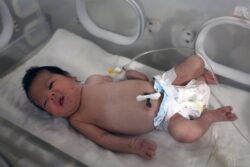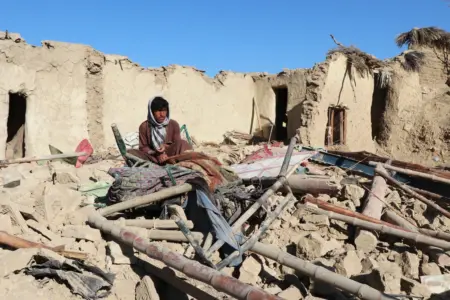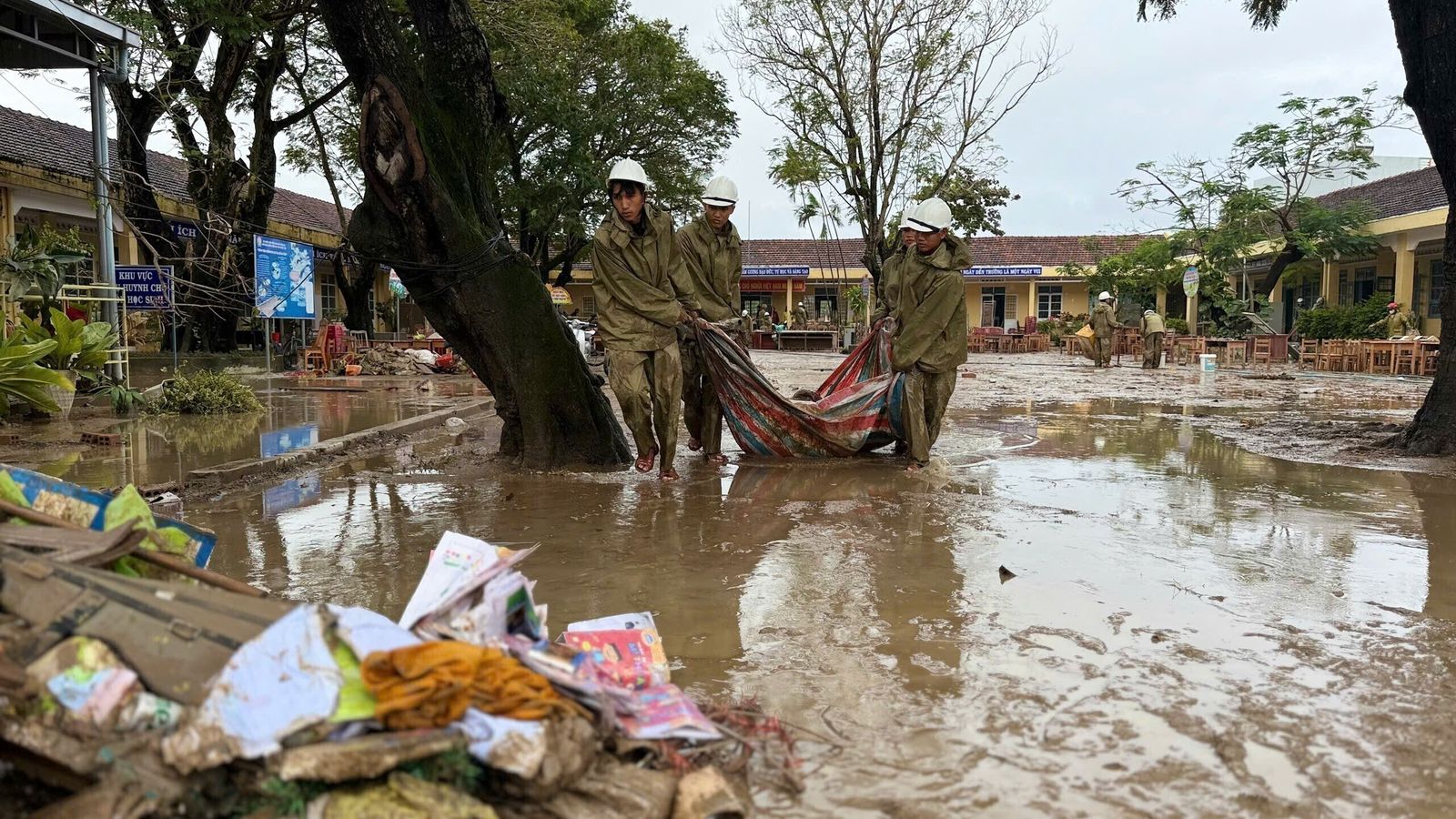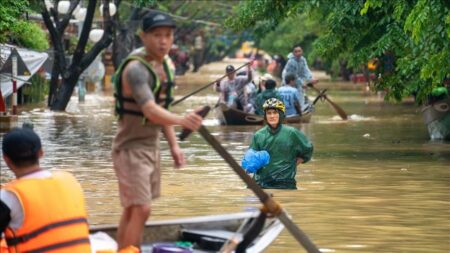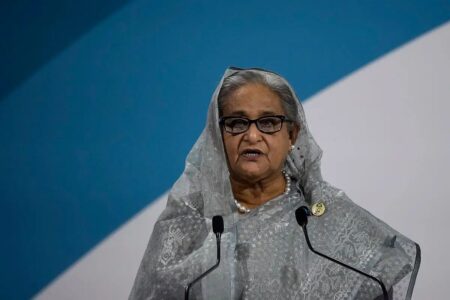The baby girl who was born under the rubble in Syria (Picture: AP)
A newborn girl born under the rubble and rescued hours later, alive, in Syria has been given the name ‘Aya’ – Arabic for ‘miracle’.
Aya was found still tied by her umbilical cord to her mother, Afraa, who died in Monday’s devastating quakes that ripped through Syria and Turkey.
Her mother went into labour soon after the disaster and gave birth before she died, an extended relative said.
Aya’s father, Abdullah, her four siblings and aunt died.
Today, the baby’s doctor, paediatrician Hani Maarouf, said she has been named Aya, written as آية , which also means ‘amazing’ or ‘wonderful’.
Footage showed a man carrying the little girl, her skin and hair covered in dust, after she was pulled from the debris in Jindayris by the Turkish border.
Aya’s cousin, Khalil al-Suwadi, told the Agence France Presse (AFP) he was digging through the debris of his brother’s home when he saw his sister-in-law’s legs.
Miracle baby shows the best in humanity
‘We heard a voice while we were digging,’ he said. ‘We cleared the dust and found the baby with the umbilical cord, so we cut it and my cousin took her to hospital.’
Suwadi kept digging through the bricks and twisted metal that remained of his brother’s home, hoping the child’s mother was still alive.
She was not, he said, but her baby was. Aya has since been safely transferred to a hospital in Afrin in the Aleppo province.
Social media footage shows a man sprinting from the rubble of the flattened five-storey building glitching the tiny, dust-chocked baby.
A second man runs towards him carrying a blanket to warm the newborn in the sub-freezing temperatures while another man shouts for a car.
Aya’s loved ones were all laid out on the floor of a nearby relative’s home ahead of a joint funeral held Tuesday.
‘We are displaced from (the eastern city of) Deir Ezzor. Abdullah is my cousin and I am married to his sister,’ Suwadi added.
Earlier this week, Maarouf said Aya arrived at the hospital in bad shape, with ‘bruises and lacerations over all her body’.
Aya was buried underneath the rubble of a five-story apartment building (Picture: AP)
Aya is now being watched at a local hospital (Picture: AP)
The newborn’s parents and siblings did not survive (Picture: AFP)
‘She also arrived with hypothermia because of the harsh cold. We had to warm her up and administer calcium,’ he said. Aya was still being kept in an incubator earlier today.
Aya is one of the millions of children upended by the two catastrophic earthquakes which tore through southern Turkey and northwest Syria.
The death toll has been climbing by the hour, killing more than 20,000 people – a figure UN officials expect to keep on rising as hope for survivors dims.
Hospitals, homes, shops and even entire neighbourhoods were wiped out in seconds by the first 7.8-magnitude earthquake, with its epicentre in Gaziantep, Turkey.
The shake was followed by an aftershock almost as big felt through neighbouring nations, with nearly 650 more tremors reported after.
The natural disaster, among the most powerful and deadly in Turkey’s history, has left hundreds and thousands homeless after their homes collapsed.
Stories, some haunting, others hopeful, have emerged of babies and children sandwiched between building rubble being hauled out by rescuers.
In Turkey, many survivors living along 200 miles of mountainous terrain are living without electricity or heat. A three-month state of emergency went into effect for 10 of the country’s 81 provides today.
Syrians, the way for them to receive aid limits, have begun building makeshift shelters as they regroup and grieve (Picture: AFP)
The combined death toll has now passed more than 20,000 (Picture: AFP)
President Recep Tayyip Erdoğan said today: ‘We can call it the disaster of the century.’
While the quakes added to an already long list of woes for Syrians in the country’s northwest, where nearly three million displaced by war live there.
The civil war divided the country into areas of government and rebel control, making humanitarian aid something tricky to send to Syrians.
The northwest is one of the few which remains outside of government control, one already dealing with fuel shortages and an especially bitter winter.
Complicating rescue efforts in Syria, the only UN-approved route to transport supplies to opposition-held areas, the Bab al-Hawa crossing, was blocked off after tremors damaged roads.
The UN said yesterday aid workers are preparing for the first cross-border aid convoy to enter Syria.
Muhannad Hadi, Regional Humanitarian Coordinator for the Syria Crisis, said: ‘We have a glimmer of hope that we can reach people.’
She was found with her umbilical cord intact.

